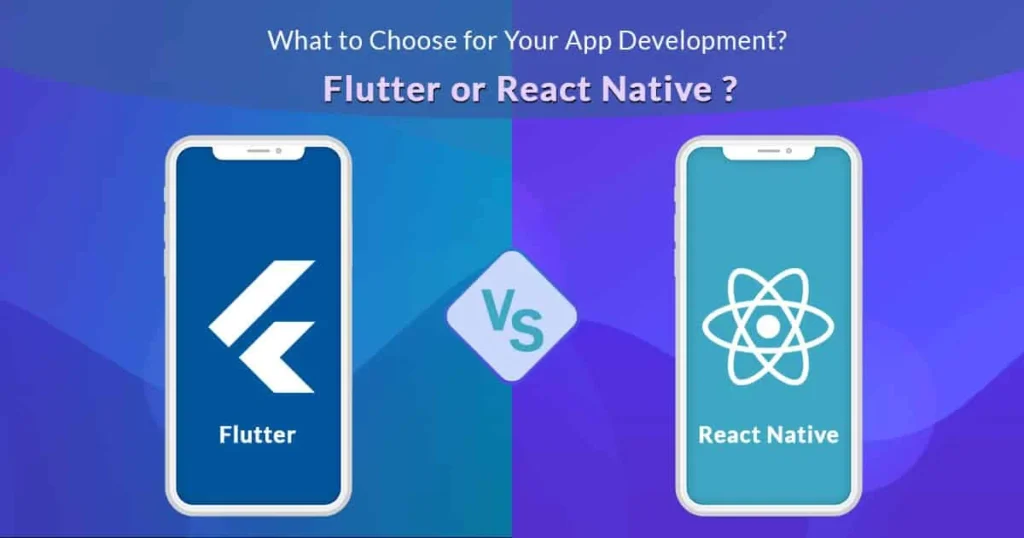
In the rapidly evolving landscape of mobile app development, choosing the right framework can significantly impact your project’s success. Two prominent contenders in the cross-platform development arena are React Native and Flutter. Both frameworks offer compelling features and advantages, but they cater to different developer preferences and project requirements. Let’s delve into a comparison of React Native and Flutter to help you make an informed decision.
Overview of React Native
React Native is an open-source framework developed by Facebook, leveraging the popular React JavaScript library. It allows developers to build mobile applications using familiar web technologies like JavaScript and React. Key features include:
- Cross-Platform Development: Write once, deploy anywhere philosophy, enabling developers to build applications for both iOS and Android platforms from a single codebase.
- Native Performance: React Native components are compiled to native code, offering performance comparable to native applications.
- Large Community and Ecosystem: Benefit from a vast community of developers and a rich ecosystem of third-party libraries and plugins.
Overview of Flutter
Flutter, developed by Google, is another open-source framework designed for building natively compiled applications for mobile, web, and desktop from a single codebase. Key features include:
- Fast Development: Flutter uses Dart programming language and provides a rich set of customizable widgets, enabling rapid UI development.
- Pixel-Perfect UI: Flutter’s UI is rendered using its own high-performance rendering engine, Skia, ensuring consistent visuals across platforms.
- Hot Reload: Instantly view changes made to the code without restarting the app, speeding up the development cycle.
Comparison: React Native vs. Flutter
1. Performance and UI:
- React Native: Uses native components, providing good performance but sometimes suffers from bridge overhead between JavaScript and native code.
- Flutter: Offers excellent performance with its own rendering engine, resulting in smooth animations and fast UI rendering.
2. Developer Productivity:
- React Native: Familiarity with JavaScript and React allows web developers to transition quickly to mobile development.
- Flutter: Requires learning Dart, but its comprehensive set of widgets and Hot Reload feature enhance developer productivity.
3. Community and Ecosystem:
- React Native: Has a larger community and extensive ecosystem of third-party libraries and plugins due to its longer existence.
- Flutter: Growing rapidly with strong support from Google, with an expanding ecosystem and active community.
4. Flexibility and Customization:
- React Native: Provides more flexibility in integrating with existing native code and libraries, suitable for projects requiring deep integration with device APIs.
- Flutter: Offers a consistent UI across platforms but may require custom solutions for platform-specific features.
Choosing the Right Framework
React Native is ideal for:
- Teams familiar with JavaScript and React.
- Projects needing seamless integration with existing native code.
- Applications requiring a large number of third-party libraries and plugins.
Flutter is ideal for:
- Teams looking for fast development and high-performance UI.
- Projects aiming for a consistent UI/UX across platforms.
- Applications where custom UI design and animations are crucial.
Conclusion
When choosing between React Native and Flutter for your mobile app development, consider your team’s skill set, project requirements, performance expectations, and community support. React Native offers familiarity and extensive ecosystem support, while Flutter provides fast development, consistent UI, and excellent performance. Both frameworks have their strengths, so the decision ultimately depends on what aligns best with your project goals and development team’s expertise.
In summary, both React Native and Flutter are powerful tools for building cross-platform mobile applications, each offering unique features and benefits. By understanding their differences and strengths, you can make an informed decision to ensure the success of your mobile app development endeavor.
Contact Us





